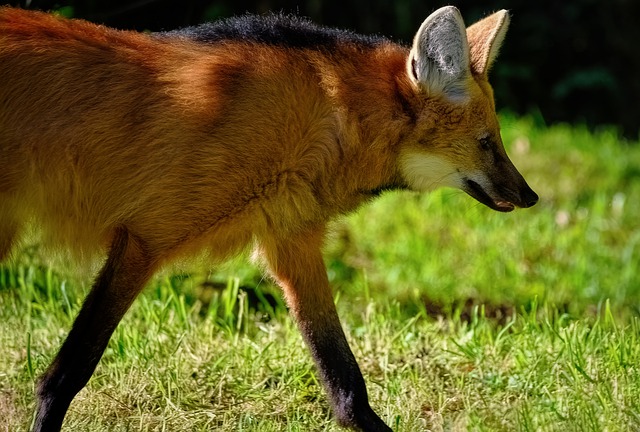



When it comes to the diet of a dog, there is often a debate about whether they are omnivorous or carnivorous. Some argue that dogs are natural carnivores, while others believe that they have adapted to be omnivorous over time. In this article, we will explore the nutritional needs of dogs and shed light on whether they are truly omnivorous or carnivorous.
Regardless of whether dogs are omnivorous or carnivorous, it is important to understand their nutritional needs. Dogs require a balanced diet that provides them with the necessary nutrients to support their overall health and well-being.
Protein is an essential nutrient for dogs as it helps in the growth and repair of tissues, supports a healthy immune system, and provides energy. Dogs require a higher amount of protein compared to other animals due to their active lifestyle. The protein in a dog's diet can come from both animal and plant sources.
Fat is another important component of a dog's diet. It provides a concentrated source of energy and helps in the absorption of fat-soluble vitamins. Fat also adds flavor to the food, making it more palatable for dogs. However, it is important to provide dogs with healthy fats and avoid excessive amounts, as it can lead to obesity and other health issues.
Carbohydrates are a source of energy for dogs. While dogs have a limited ability to digest carbohydrates compared to humans, they can still benefit from including them in their diet. Carbohydrates can come from sources like grains, vegetables, and fruits. It is important to choose high-quality carbohydrates that are easily digestible for dogs.
Vitamins and minerals are essential for the overall health and well-being of dogs. They play a crucial role in various bodily functions, including the immune system, bone health, and energy metabolism. Dogs require a balanced mix of vitamins and minerals, which can be obtained through a well-rounded diet.
Water is often overlooked but is a vital component of a dog's diet. Dogs need access to fresh and clean water at all times to stay hydrated. Water helps in digestion, regulates body temperature, and supports various bodily functions. It is important to ensure that dogs have access to water throughout the day.
When it comes to feeding dogs, it is important to follow feeding guidelines provided by veterinarians or pet nutritionists. The amount of food and frequency of feeding can vary depending on factors such as age, size, activity level, and overall health. It is important to provide dogs with a balanced diet that meets their nutritional needs.
Just like humans, dogs can also experience dietary issues. Some common dietary issues in dogs include food allergies, sensitivities, and intolerances. It is important to identify any dietary issues and make necessary adjustments to the dog's diet to ensure their health and well-being.
There are certain situations where dogs may require special dietary considerations. For example, dogs with certain medical conditions may require a specific diet to manage their condition. Additionally, senior dogs may benefit from a diet that supports joint health and overall aging. It is important to consult with a veterinarian to determine any special dietary considerations for your dog.
So, is the dog omnivorous or carnivorous? While dogs have evolved from their carnivorous ancestors, they have adapted to be omnivorous over time. Dogs can thrive on a balanced diet that includes a combination of protein, fats, carbohydrates, vitamins, minerals, and water. It is important to provide dogs with a diet that meets their nutritional needs and to make any necessary adjustments based on their individual requirements.
Leave a Reply
Related posts